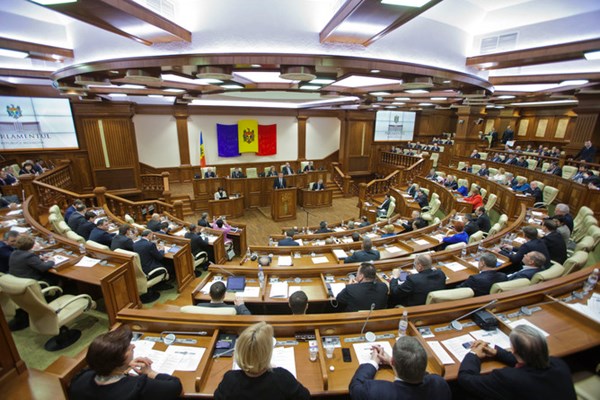Moldovan parliament votes for a bill banning broadcasts of Russian news programs
The Moldovan parliament has voted in favor of a law to prohibit broadcasts of Russian news and analytical programs, Deutsche Welle reports.
Legislative amendments passed by the Parliament on December 7 in just two readings will only permit informational and analytical programs produced in countries that have ratified the European Convention on Transfrontier Television to be relayed on the Moldovan territory. Russia signed the Convention back in 2006, but did not ratify it.
The bill, which has been approved by the parliament, was drafted in 2017 by a group of MPs from the ruling Democratic Party and the European People's Party.
The amendments to the Moldovan TV and Radio Broadcasting Code envisage fines from 70,000-100,000 lei (3,500-4,900 euros) for violators of the law.
Parliamentary discussion of the bill lasted three hours. Although the document does not directly address a ban on broadcasting of Russian programs, nor is there is not a single word about Russian propaganda, supporters of the change spoke about Russia and the harm the country brings. Their opponents recalled human rights and freedom of speech.
The oppositional Party of Communists faction left the meeting room without waiting for the vote. The Socialists, who are fighting on behalf of a Eurasian development path for the country, did not vote, although they remained in the hall. 61 out of 87 MPs present at the meeting spoke in favor of the change. The Moldovan parliament consists of 101 members in total.
Discussion of a ban on Russian propaganda in Moldova has been ongoing for nearly two years. In 2015, two relevant laws were registered in the Parliament. However, one matter did not come to the fore before the discussion of the draft laws: OSCE Representative on Freedom of the Media Dunja Mijatović had subjected both documents to sharp criticism. In an analytical report by her organization, the introduction of a ban was called " a blunt and at the same time disproportionate tool against propaganda," which, among other things, could negatively impact freedom of speech.
In the summer of 2017, the Parliament voted in favor of a number of amendments to the Broadcasting Code in the first reading. In addition to media requirements to increase the time and volume of its own products, the draft law contained a clause banning Russian propaganda on radio and television. This paragraph disappeared from the document in the second and final reading.
President Igor Dodon has already stated that he will not sign the controversial document. According to Moldovan legislation, however, the Speaker of the legislative body or the Prime Minister can sign instead of the Head of State, should the latter twice refuse to sign a bill passed by Parliament.
